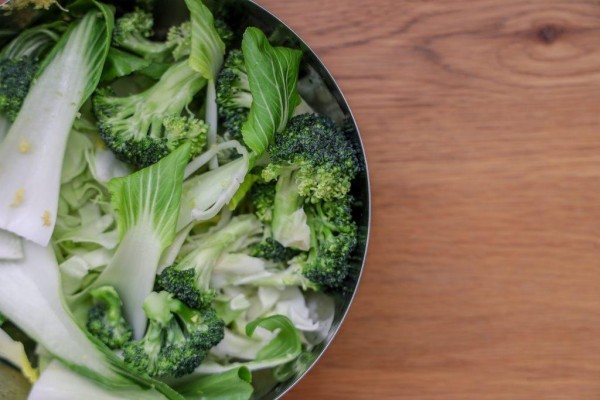Vitamin K May Help Improve Heart Health and Increase Longevity, New Research Suggests

Everybody knows that vitamin and mineral has a lot of benefits. As new research suggests, not all people know that Vitamin K may be a "particular standout" in terms of increased longevity.
The American Journal of Clinical Nutrition published a meta-analysis that looked at research from three major studies that represented more than 4,000 respondents whose ages ranged from 54 to 76.
The said research found that participants who had the lowest levels of Vitamin K had a 19-percent higher risk of death than those who had sufficient Vitamin K intake.
Additionally, researchers acknowledged that the research they found is "observational." Meaning, it does not demonstrate cause and effect. More so, it does not indicate that low levels of Vitamin K are the leading cause of shorter life. More so, researchers said, simply, there's a link between them.
ALSO READ: Vitamin D as a COVID-19 Breakthrough and How It Can Alleviate the Impact on BAME People
Vitamin K and Its Link with Blood Vessels
The link between Vitamin K and shorter life might take place because, according to Kyla Shea, Ph.D., the first author and Vitamin K Team scientist at Tuft University's Human Nutrition Research Center on Aging, the said vitamin is crucial for the maintenance of healthy blood vessels.
When that particular buildup occurs in the coronary arteries, she added, it is connected to atherosclerosis and cardiovascular illness.
Meanwhile, the buildup of calcium in other arteries in the entire body can lead to arteries becoming stiff. Shea added this had been associated with early death in past research.
DON'T MISS THIS: 5 Benefits of Fennel Seeds
Older Adults Possibly Lacking Vitamin K
Like the other essential vitamins and minerals, it is vital for individuals of all ages to get an adequate amount, which the USDA puts at 90 mcg each day for women, and 120 mcg for men.
However, the same study said, older adults tend to require more dosage of vitamins and minerals each day. That's because the Ohio State University Wexner Medical Center's dietitian, Samantha Cochrane, RD, RD said, since people age, there is a drop in their ability to absorb the nutrients coming from food adequately.
A study review in nutrition recently reported that Vitamin K could improve the balance of calcium, not to mention, bone health, especially when combined with Vitamin D.
Although many of the research covered concentrated in individuals who had osteoporosis, the researchers found that increased vitamin intake can help bone density for all, even when taken in low dosages.
Meanwhile, Cochrane also said, with the elderly already at risk for osteoporosis or bone fractures, it is essential to get enough of this nutrient and the others that function in keeping bone integrity.
Excellent Sources of Vitamin K
While Vitamin K can be consumed as a separate supplement and is considered a part of a lot of multivitamin blends, Cochrane added that a better starting point to boost intake is through food, specifically those with the highest Vitamin K content.
Among these foods are the dark, leafy green vegetables. These nutritionists claimed, are rich in fiber, antioxidants, nutrients, and phytochemicals that certainly provide a whole lot more of benefits to the body.
Excellent sources of Vitamin K are mustard greens, collards, Brussels sprouts, romaine lettuce, broccoli, asparagus, and cabbage, among others.
One important thing to note, Cochrane explained, is that Vitamin K is a fat-soluble vitamin. This means that one needs to eat some fat simultaneously for the body to absorb Vitamin K effectively.
IN CASE YOU MISSED THIS: Can Dietary Supplements Prevent Illness? Here's What You Need to Know
Jun 27, 2020 09:30 AM EDT





